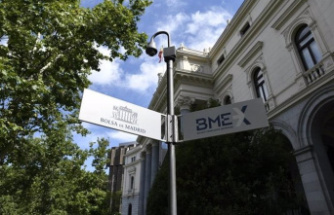In the wake of the trillions of dollars stretched out by governments to mitigate the economic consequences of the COVID-19 pandemic, the artificial and extreme cut in central bank key rates, the invasion of Ukraine by Russia's Vladimir Putin, the economic ills add up.
Soaring gas prices, real estate speculation, high inflation, supply problems, household over-indebtedness, rising interest rates... are hurting the economy to such an extent that it could lead us in recession.
If the American stock market has been doing so badly for the past few months, it is precisely because of this fear of investors that the United States will soon fall into recession, or into a major economic slowdown. Parenthesis: we must never forget that on the stock market, investors and analysts try to anticipate “reality” several months in advance.
In addition to the fear of falling into recession, there is the "solid" rumor suggesting that the American Federal Reserve will give a helm against inflation tomorrow by raising its key rate by 75 basis points, which is shaking confidence investors. And that other increases will follow by the end of the year in order to fight against inflation.
Wall Street in a bear market
This is why, after the NASDAQ, it is now the turn of the most important stock market index in the world, the S
At the bottom of yesterday's trading session, the S
Technically speaking, when the value of an index falls by 20% or more during the period from the peak to the trough of the market, it falls into a bear market.
This is also the case for the NASDAQ index, where we find, among others, the giants of high technology. The NASDAQ showed at the bottom of the session yesterday a significant decline of 33% compared to its recent peak.
On the American side, there is also the Russell 2000 small cap index, which has suffered a major decline since its recent peak. It shows losses of 30.5%.
For the moment, only the Dow Jones, of the 30 major American industrial companies, has managed to avoid the painful transition into a bear market. Note that he is not far off with his 17.5% decline so far.
Canadian fix
While the American markets are being beaten up these days, the Canadian stock market, more particularly its main index, the S
It is the good performance of securities in the “energy” and “materials” sectors that allows the barometer of the Toronto Stock Exchange to do better than the American market.
But when it comes to the Canadian small cap index, the S
The Quebec IQ-30 and IQ-120 indices show losses ranging from 13 to 17%.
Note that the sharp increase in the Bank of Canada's key rate, including another increase of 75 basis points next July, could stun many households and businesses.
What is a recession?
When is a country in recession? This is when we observe a decline in gross domestic product (GDP) for at least two consecutive quarters.
The last recession in the United States dates back to February 2020, when the COVID-19 pandemic arrived.
Fortunately, it only lasted two months, compared to three months in Quebec.
Fingers crossed that the next recession will be as short!
Well-deserved correction
Over the past three years, investors have gone beyond what is reasonable. Speculation has exploded many titles. Making money on the stock market had become too easy.
While the Canadian stock market made us richer at an annualized rate of 17.5%, the American stock market reported an annualized return ranging from 20 to 33% over three years.
Today, we are “victims” of the return of the pendulum.
Reality catches up with us. And our wallets are being plucked.
On the stock market, it should be remembered, for a pessimistic seller who liquidates securities, there is an optimistic buyer who believes he is buying at a bargain price.
The stock market is full of bargains right now. But buying in a bear market takes nerve and above all...deep pockets!













